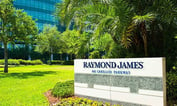Consolidation in the fund management industry got another jolt today with news that Trian Fund Management has taken a 9.9% stake in both Invesco and Janus Henderson.
According to Trian’s filings with the Securities and Exchange Commission, Trian has acquired 45.46 million shares in Invesco worth about $493.6 million and about 18 million shares of Janus Henderson, worth about $387.6 million, or about $881 million in total.
Both stocks surged on the news, with Invesco shares up 6.3% in early afternoon and Janus Henderson shares soaring close to 16% higher.
Trian did not reveal its plans for the stakes and would not comment beyond its SEC filings, but The Wall Street Journal, which broke the news, reported that Trian believes Invesco has the potential to grow by acquiring Janus Henderson and becoming a stronger competitor to larger asset managers like BlackRock. Trian Fund Management is the investment arm of Trian Partners, founded by Nelson Pelz, Ed Garden and Peter May.
Both target firms have been making their own acquisitions and are known for their actively managed funds. Invesco acquired OppenheimerFunds last spring and the ETF business of Guggenheim Investments in spring 2018. Janus Henderson itself was formed in May 2017 when the U.K.-based Henderson Group acquired Denver-based Janus Capital Group.
Invesco released a statement saying that it welcomed “high quality investors” in its firm and continuously evaluates “opportunities to further strengthen” its ability “to meet client needs and hence long-term shareholder value.”









 October 02, 2020 at 03:14 PM
October 02, 2020 at 03:14 PM











